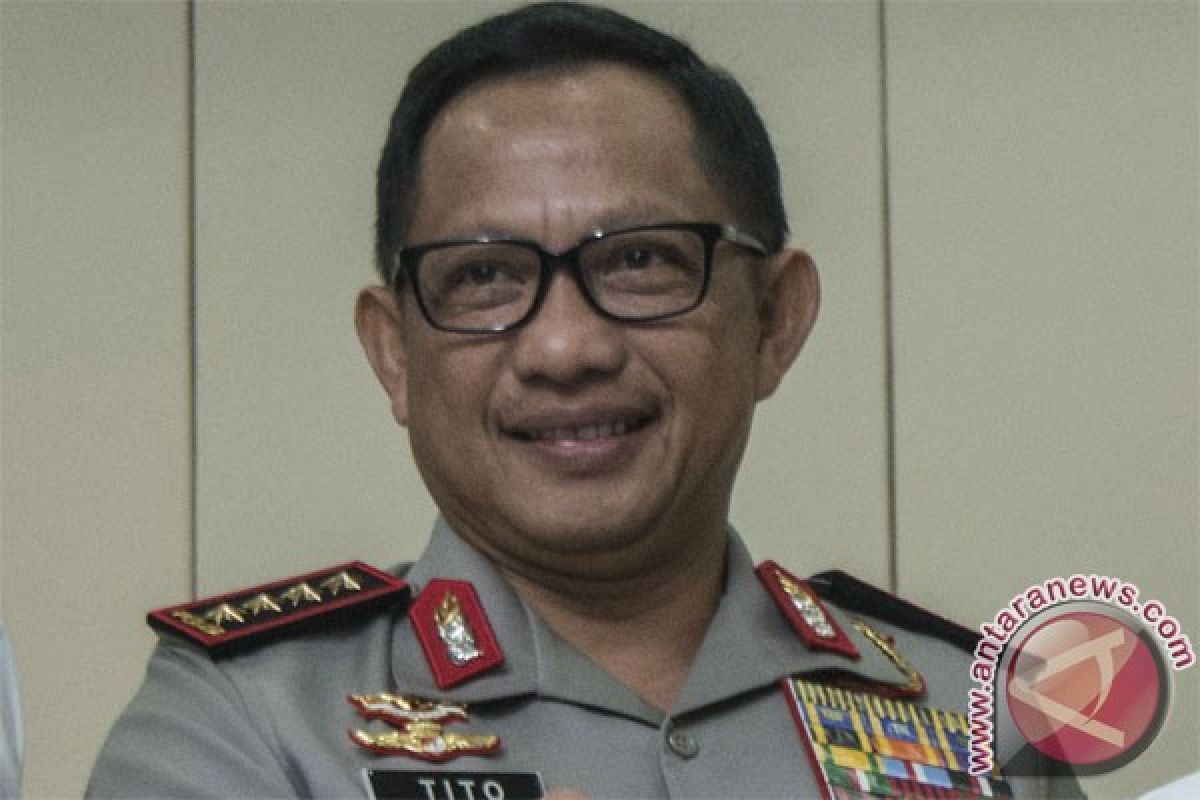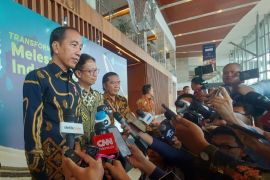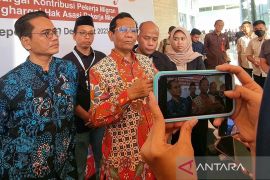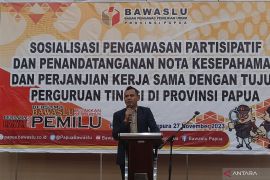"We hope that colleges are able to map the internal environment to ascertain whether radical groups exist, identify who the characters are, and strive to prevent the spread of radical movements," National Police Chief General Tito Karnavian said.Jakarta (ANTARA News) - Universities in Indonesia are viewed as strategic places to edify and fortify the younger generation against the movements of radical groups in the country.
Radical movements appear to have infiltrated several universities, so National Police Chief General Tito Karnavian expects the institutions to remain vigilant and keep track of radical groups in their respective academic environments.
Amid the growing phenomenon of intolerance and radicalism, universities are expected to actively respond to several issues related to ideologies that contradict Pancasila and Bhinneka Tunggal Ika, or unity in diversity.
The state ideology of Pancasila, national motto of Bhinneka Tunggal Ika, the Unitary State of the Republic of Indonesia (NKRI), and the 1945 Constitution are the four state pillars that must be guarded.
Research, Technology, and Higher Education Minister Mohammad Nasir has said that students and even lecturers at universities across Indonesia have been influenced by radicalism, which has increased the risk of national disintegration.
Hence, during a National Seminar of Higher Education Institution as the Fortress of Pancasila and NKRI held in Nusa Dua, Bali, on Monday, Karnavian remarked that universities must counter the spread of radicalism on campus.
"We hope that colleges are able to map the internal environment to ascertain whether radical groups exist, identify who the characters are, and strive to prevent the spread of radical movements," the National Police chief stated at the seminar, attended by leaders of state and private universities across Indonesia.
Karnavian also called on experts from various campuses to contribute to the deradicalization efforts and to moderate the thought process of those influenced by radicalism in order to prevent its spread.
Colleges are urged to convey the ideology of democracy based on Pancasila to all students.
In addition, the campus, as an academic institution, is also expected to survey and maintain scientific records of terror events of radical groups taking place in the country.
Radicalism is a notion that permits the use of violence to bring about socio-political changes, and this should certainly not be allowed to flourish in Indonesia.
In the meantime, Seminar Steering Committee Chairperson Dr Putri Anggreni, the rector of Mahendradatta University, said the seminar was held to reiterate the importance of the values of Pancasila, the 1945 Constitution, Bhinneka Tunggal Ika, and NKRI and to highlight the importance of the values of peace, harmony, and nationalism.
Angraeni said the country has witnessed escalations in various fields and is faced with the issue of the values of nationality and nationalism being undermined.
Hence, the unity and integrity of NKRI should continue to be safeguarded from the threat of radicalism that is currently prevalent in various regions across the country.
Indonesia, the worlds most populous Muslim-majority country, should work hard and pull itself together to address the threats of radicalism and extremism and safeguard the Constitution that enshrines religious freedom and diversity.
State Defense Forum of the Republic of Indonesia (FBN-RI) Chairman H. Ahya of Lebak District, Banten Province, has stated that the idea of radicalism that is currently rife in various regions can threaten the unity and integrity of NKRI.
After being inaugurated as the chairman of FBN-RI for Lebak District for the 2017-2022 period on Monday, Ahya remarked that the nations younger generation must shoulder the responsibility of maintaining and defending the integrity of NKRI, so that it does not split.
He believes the integrity of NKRI is final and cannot be contested or changed again due to the result of the struggle of all Indonesian people to realize a sovereign, just, and prosperous country.
Ahya said the heroes were willing to sacrifice their bodies and souls for upholding the ideals of an independent nation in order to improve the welfare of Indonesian society.
However, the Indonesian nation currently is highly concerned about the emergence of radicalism that can pose a threat to the unity of NKRI and trigger rampant drug circulation and crimes of corruption.
"All actions certainly took place due to the game of foreign parties who are looking to destroy the integrity of NKRI," he noted.
He said all public elements should take responsibility for maintaining and preserving the NKRI, which has diverse religions, tribes, languages, and customs.
Further, Ahya affirmed that the FBN-RI is committed to maintaining robust and dynamic national resilience for the integrity of NKRI.
In addition, he said the FBN-RI will be ready to fight for the integrity of NKRI by providing an understanding of nationality to the countrys younger generation and safeguarding the nation from the threat of radicalism.
During his address to the Parliament on August 16, 2017, ahead of the Independence Day anniversary, President Joko Widodo remarked that all parties must work together not only to create an equitable economy but also to bring about ideological, political, social, and cultural developments.
"With regard to ideology, we have to strengthen our national consensus in safeguarding Pancasila, the 1945 Constitution, the NKRI, and Bhinneka Tunggal Ika, or Unity in Diversity," the president had noted at the time.
The head of state said the countrys current and future challenges are not easy.
"We are still confronted with poverty and injustice. We are still facing global economic uncertainty, and we are also facing movements of extremism, radicalism, and terrorism," the president pointed out.(*)
Reporter: Otniel Tamindael
Editor: Heru Purwanto
Copyright © ANTARA 2017












